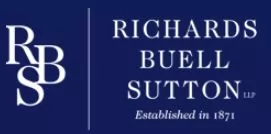Most, if not all, businesses which offer risky recreational activities to customers utilize some form of exclusion of liability clause or waiver to attempt to prevent customers from suing the operation in the event they are injured while participating in the activity. Many of those waivers attempt to exclude the operator's liability even for its own negligence.
In the recent decision of Apps v. Grouse Mountain Resorts Ltd., 2020 BCCA 78, the BC Court of Appeal clarified the circumstances in which such waivers will be considered operable. The case should serve as a reminder to insurers and insureds to review the procedures insureds have in place regarding such waivers to ensure the waiver can be relied on if and when it is needed.
THE FACTS
In the fall of 2015, Mr. Apps moved from Australia to Whistler to live, work, and snowboard. Mr. Apps was an experienced snowboarder and bought a season's pass for Whistler Blackcomb. In March 2016, Mr. Apps and some friends bought lift tickets to go snowboarding for the day at Grouse Mountain ("Grouse").
Above the Grouse ticket booth where Mr. Apps bought his ticket was a poster containing the terms of a liability waiver, which included an exclusion of liability for Grouse's own negligence. The waiver was also replicated on the back of the ticket that Mr. Apps received after he paid for it. In addition, a sign was posted inside the terrain park, not visible from the ticket booth, which warned of the risks of using the terrain park and included a reference to the exclusion of liability clause on the back of the ticket. Mr. Apps went to the terrain park, proceeded off an "XL" jump, and suffered catastrophic injuries that left him a quadriplegic. He subsequently brought a civil action against Grouse for the alleged poor design, construction, and maintenance of the "XL" jump.
Grouse defended the claim on the basis that the waiver of liability constituted a complete defence and brought a summary application to dismiss the action.
THE RULING
The trial judge found that Grouse had taken reasonable steps to ensure Mr. Apps knew that in purchasing the lift ticket he was agreeing to waive his right to sue Grouse even for Grouse's "own negligence". She also found that the warning at the ticket booth and back of the ticket, combined with the warning inside the terrain park, was reasonable notice in the circumstances. The trial judge also considered Mr. Apps' experience with signed waivers as a season's pass holder at Whistler Blackcomb and ski/snowboard technician at a Whistler equipment rental shop in determining he had sufficient notice of the "own negligence" exclusion in Grouse's waiver. The judge dismissed Mr. Apps' negligence claim against Grouse.
The Court of Appeal found that the trial judge had committed legal errors in her analysis of the waiver's application and granted Mr. Apps' appeal. The following four salient points can be taken from the Court of Appeal's analysis:
- An "own negligence" clause is one of the most onerous of terms and Grouse was required to bring the clause to Mr. Apps' attention by "the most explicit notice";
- Grouse had to provide reasonable notice of the clause to Mr. Apps before he purchased the ticket; any subsequent signs or warnings Mr. Apps encountered on the mountain, like the warning posted inside the terrain park, were not relevant to determining whether Mr. Apps would be bound by the waiver;
- On the facts before the trial judge, the waiver could not bind Mr. Apps as it was "buried in a difficult-to-read section, among colons and semicolons, with no attempt to highlight it or emphasize it in any way, in a notice posted where it would be unreasonable to expect anyone to stop and read it", that being in a corner of the ticket window and on the back of the lift ticket in small print; and
- Any previous experience Mr. Apps had with signed waivers at a different mountain should not be considered; while Mr. Apps must have assumed to have understood what he was signing when he signed Whistler's waiver, that assumption was not transferable to satisfy Grouse's obligation when purporting to contract out of its duty of care.
PRACTICAL CONSIDERATIONS
Apps serves as a stark reminder that "own-negligence" liability waivers will be critically scrutinized by the courts against the party seeking to rely on them. Companies that seek to impose such clauses on their customers must take certain steps to ensure they are sufficiently brought to their customers' attention at the appropriate time. Wherever possible customers should be obligated to sign such waivers as execution brings with it a presumption at law that the person signing intends to be bound by the waiver's terms. However, where signing is not possible or practical, "own negligence" clauses should be particularly underscored (for example, bolded and highlighted in a colored box) and notices should be prominently posted in easy to view locations at the time of purchase.
When underwriting, insurers should take the opportunity to review the content and form of liability waivers and the procedures insureds' have in place to give notice of such waivers to their customers at the time of contract. Some simple changes may be needed to bring those waivers and procedures in line with Apps and, in turn, significantly reduce litigation risk.
If you have any questions related to this article, please reach out to any member of the Insurance Group, or contact Ryan directly at 604.909.9312 or at rshaw@rbs.ca.
The content of this article is intended to provide a general guide to the subject matter. Specialist advice should be sought about your specific circumstances.

